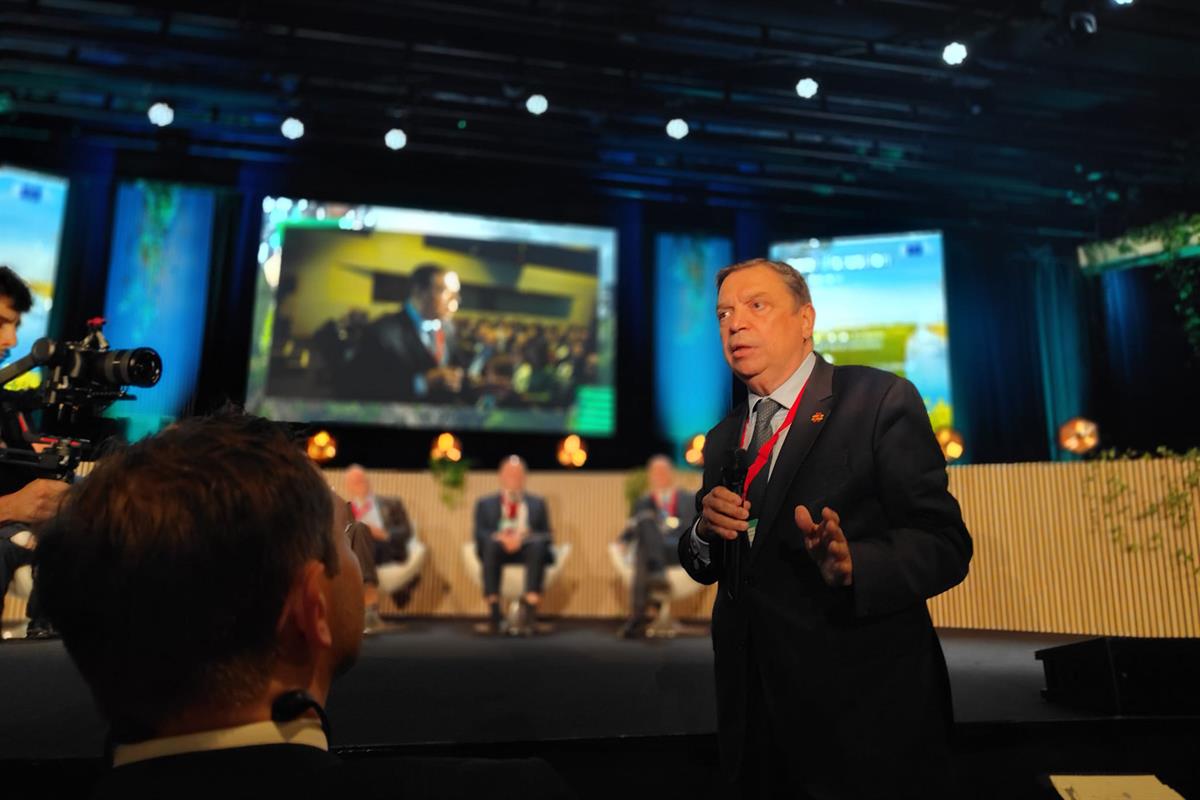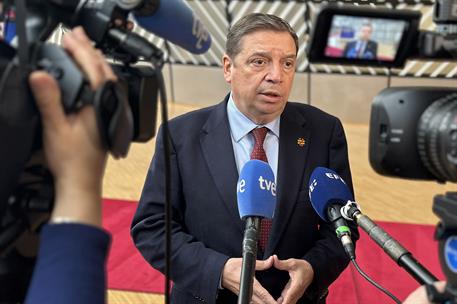 The Minister for Agriculture, Fisheries, and Food, Luis Planas, attends the conference on the future of agriculture and food organised by the European Commission in Brussels
The Minister for Agriculture, Fisheries, and Food, Luis Planas, attends the conference on the future of agriculture and food organised by the European Commission in Brussels
Luis Planas stressed that the future Common Agricultural Policy (CAP) post-2027, whose first proposals for debate will be presented by the European Commission in the second half of this year, "must be well financed, with sufficient funds, have its own personality" and be equipped with the necessary instruments to meet the challenges facing agri-food production on the continent.
Planas took part in Brussels in the conference on the future of agriculture and food organised by the European Commission, at what he considered to be a key moment, on the eve of the discussion on the new financial perspectives of the European Union (EU). The minister reiterated his support for the Vision for agriculture and food document, recently presented by the Commission, which he stressed is very complete and has the merit of anticipating many of the sector's future challenges.
Among these challenges, the minister highlighted those of making the profitability of agricultural activity compatible with sustainability, generational changeover linked to innovation, and the authorisation of substitute products in the phytosanitary field to respond to the new problems of pests and diseases linked to climate change.
Luis Planas took part in the interactive session "Improving resilience to future risks and crises: He spoke about Spain's "extensive experience" in dealing with risks and crises. The Spanish agricultural sector is highly exposed to adversity due to climate issues - recurrent droughts, torrential rains, heat waves -, because it is a frontier for pests and diseases, and because of the diversity of production and its strong export trade, which cause episodes of market crisis.
The minister defended the need to review and update the EU crisis reserve fund so that it can fulfil its function as a stabilisation and support instrument for the agricultural sector with guarantees. In this respect, he pointed out that some of the reference prices used are 30 years old.
Agricultural insurance in Spain, an international benchmark
Among the instruments for dealing with these risks, the minister highlighted above all agricultural insurance, a public-private system created 45 years ago, which is the best protection available to farmers and stockbreeders, and which has become a benchmark for other countries.
The Government subsidy for insurance policies amounts to 315 million euros this year, almost 11% more than in 2024 and with a cumulative increase of 50% since 2020. With the contributions of the autonomous communities, public support for insurance in Spain amounts to some 500 million annually, almost half of the cost of premiums. The private insurers are organised in a consortium, Agroseguros, which provides the coverage.
The minister pointed out that in certain high claims years, additional funds from outside the insurance system may be needed to cover part of the claims without affecting the cost of the policies.
For this reason, he advocated the creation of a reinsurance system in the Union with the participation of the European Investment Bank, which would make it possible to deal with situations such as those experienced in Spain in 2023, when compensation for adverse climatic events reached the historic record of 1.4 billion euros, which would have put the stability of the system at risk if there had not been strong public support.
A second instrument highlighted by the minister as a factor that gives stability to production, regardless of climatic changes, and is fundamental for food security, is sustainable irrigation. In Spain, irrigation accounts for 22% of the total cultivated area, but 71% of the total value of plant production is obtained there. For this reason, the government is immersed in the most ambitious irrigation modernisation process ever undertaken, with more than 2.5 billion in investment up to 2027, which will enable more efficient use of water and a reduction in energy consumption.
Other indispensable tools to address risks and contribute to a more sustainable and efficient agricultural sector are innovation, technology and knowledge. The minister recalled that yesterday the new call for aid for innovation projects carried out by supra-autonomous operational groups was published for a value of 46.5 million euros, the highest budget in the history of this line of support.
He also pointed out the investments in precision agriculture and livestock farming and once again reiterated the importance of new genomic techniques to achieve crop varieties that are better adapted to climatic and phytosanitary risks, and hoped that the European regulation in this respect could be approved during the course of this year.
Non official translation





